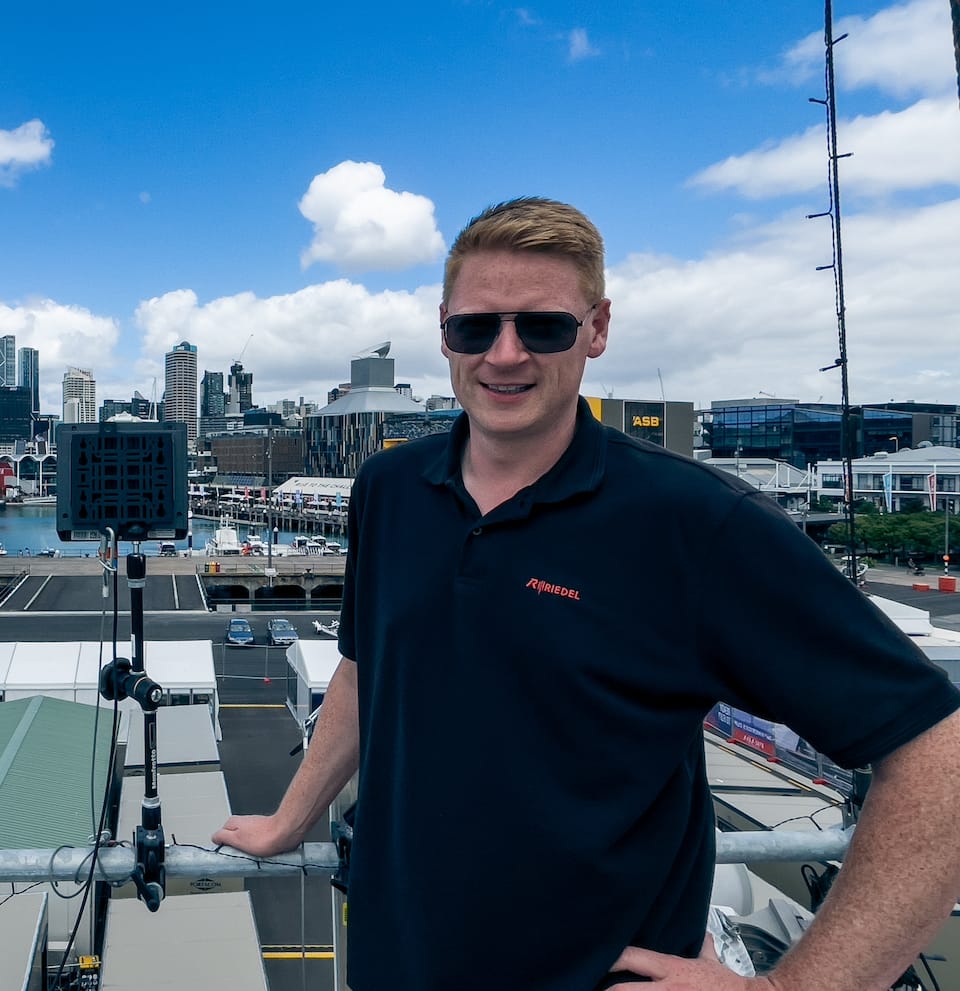
Mr. Tim Puschkeit in New Zealand at the America's Cup
What was your experience with the aptitude tests or the preliminary course? How would you evaluate the preliminary course? Did the experience help you in your studies?
I can only recommend the preliminary course, especially because it first of all introduced me to the subject of "studying" and prepared me for the MBA program. The tasks in the aptitude semester were already very demanding, and also the fact that all of this had to be completed while working was more than a jump in at the deep end. Nevertheless, the aptitude course could also be seen as a test semester, and topics that still sounded unimaginable and absurd at the beginning of the semester were suddenly comprehensible and understandable several months later. You were surprised to see how you were taught methods and approaches, with which you were subsequently able to work out topics on your own in a very short time that you had never had any connection to before.
How did you find out about the program?
It was pure chance: I stumbled across it by chance at the right time in the right place and decided to do it at short notice.
How does the distance learning program work for you in terms of time and organization?
In terms of time, the guidelines are already suitable, although it has to be said that you shouldn't underestimate the overall effort involved. I think you also have to be aware of how you schedule yourself and what goals you want to achieve. However, one also grows from the challenges from semester to semester and learns from time or organizational bottlenecks and then starts earlier in the following semester, for example. Studying is a dynamic learning process, in that you understand for yourself which topics may take longer, what demands and goals you set for yourself, and what may be easier for you and therefore less time-consuming. From an organizational point of view, it should be said that all documents and also deadlines are communicated well in advance. Likewise, there are possibilities to make alternative appointments at other locations, so that everything can actually always be attended and realized. The distance learning program coordination by Ms. Welsch and Ms. Fremgen is particularly noteworthy. The support I experienced there was unique. The two are the good soul of the study program and always find the right answer to simple and sometimes "stupid" questions, exam preparations, expectations of professors and lecturers and also always have a solution or answer ready for problems, fears or worries.
Which lecture/seminar do you remember most fondly and why?
All lectures with guest lecturers from the free economy were different, but also very instructive. They were not just about technical knowledge, but more about showing ways, exchanging experiences and understanding practical applications. These topics were always very close to practice and were also individually designed, they were open discussions and not fixed predefined lectures.
What has been most interesting for you so far, which contents can you use directly in your professional environment?
All management topics and tools of holistic management could be implemented by me promptly and were also a great help in project management.
What are your career plans?
To constantly develop, to go through the world with open eyes and to accept and realize new interesting challenges and projects. I have also become much more relaxed as a result of the degree and know that this can also be used to take a job in other industries. In addition, I unfortunately had to realize that all the plans I had made for myself in the past always came out differently, but it was always moving forward. So I am curious to see what the future will bring.